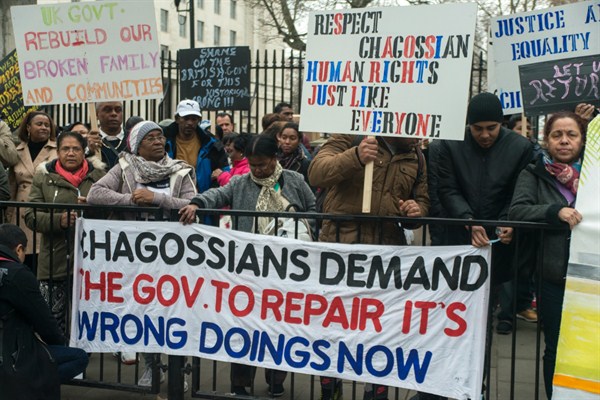The International Court of Justice in The Hague ruled last week that the United Kingdom must cede control over the Chagos Islands, an Indian Ocean archipelago that was separated from Mauritius several years before Mauritius gained independence in 1968. The 13-1 verdict, while nonbinding, was an embarrassing defeat for the U.K. and a victory for many Chagossians who have sought to return to their homeland since being expelled in the 1960s and 1970s to make way for a U.S. military base on the island of Diego Garcia. In an interview with WPR, Marko Milanovic, a professor of public international law at the University of Nottingham in the U.K., discusses the many questions the ICJ’s ruling raises.
World Politics Review: What prompted this case to be heard at the ICJ, and on what basis did the judges rule in Mauritius’ favor?
Marko Milanovic: The ICJ can hear two types of cases. In contentious cases, it decides disputes between states that have consented to its jurisdiction, and its judgments are binding on the parties. In advisory cases, it is asked by a competent U.N. body to give its opinion on a matter of international law. The Chagos Islands case was an advisory one, in which the U.N. General Assembly issued a request for an advisory opinion. This required a lot of lobbying by Mauritius in order to persuade enough states to vote in favor of its proposal for a request. In the end, the General Assembly issued the request with 94 countries in favor, 15 against and 64 abstaining. On one hand, this result was a consequence of the U.K.’s diminished standing on the international stage, especially after the 2016 Brexit referendum. On the other hand, it is also a consequence of just how poorly, and inexcusably, the U.K. has treated the Chagossians, thousands of whom were forcibly removed from the islands in the 1960s and 1970s to make way for the Diego Garcia naval base.

